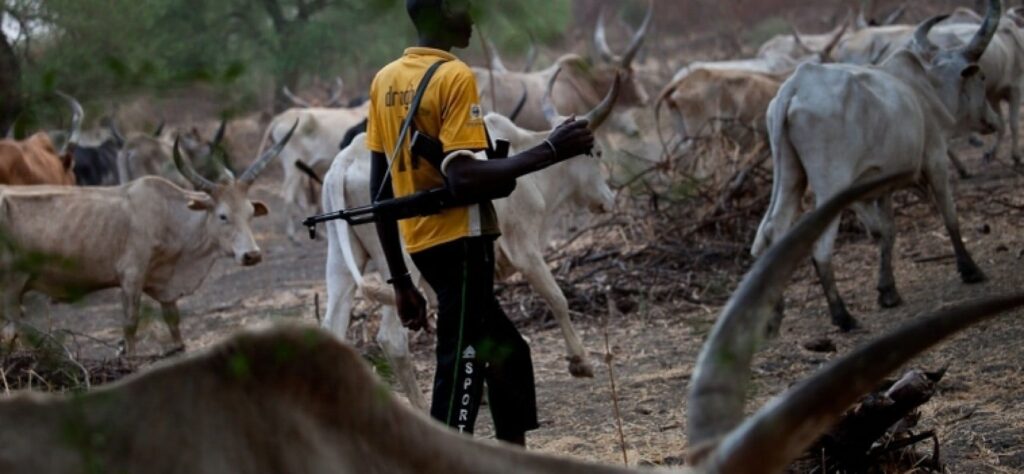…Afenifere calls for strict enforcement
The pan-Yoruba socio-political organisation, Afenifere, has described the pronouncement by the leadership of Fulani communities in Southwest Nigeria on grazing in the region as a welcome development and called for its strict enforcement without further delay.
A release by the National Publicity Secretary of Afenifere, Comrade Jare Ajayi, stated that the ban placed on herders by the Southwest Fulani Council on night grazing, carrying firearms and herding by underage children is a welcome development that should be enforced to the letter.
It would be recalled that the Chairman of the Council of Fulani Chiefs in the Southwest, Alhaji Mohammed Abubakar Bambado II, at a press conference in Lagos early this week, outlined various measures the council considered as necessary to curb insecurity in the Southwest and strengthen peaceful co-existence between herders and host communities in Yorubaland.
At the conference in which Fulani chiefs from all the Southwest states, including Kwara State, were present, Bambado announced that:
“The Council affirms an absolute ban on night grazing, underage grazing, and herders carrying firearms or other dangerous weapons unrelated to the profession.” He asserted that this decision was taken as it would help to “restore sanity and peace in the sector”, he announced in a widely reported.
Besides announcing the council’s readiness for sensitisation programmes in Hausa, Yoruba and English to reach Fulani members across rural and urban communities, Bambado further disclosed that the council would collaborate with the Development Agenda for Western Nigeria (DAWN Commission), security agencies and traditional leaders to enforce the measures.
Recalling that Fulanis have been living peacefully with their Yoruba hosts for centuries without clashes until very recently, Bambado, who is also the Sarki Fulani in Lagos State, emphasized that his council is determined to bring back that peaceful cohabitation practice and sustain it.
“We condemn in totality any act of banditry, kidnapping, farmland destruction and any form of herder-farmer conflict that could be linked to the Fulani community.
“We call on security agencies, especially the Office of the National Security Adviser, to fish out criminal elements and their conspirators within host communities, while we urge the media to report responsibly to avoid ethnic profiling,” the Fulani leader added.
Reacting, Ajayi expressed the hope that with this position by the Fulanis, the anti-open grazing laws made by various state,s particularly in the Southwest, will now be effectively implemented. Among the states that have enacted such laws were: Lagos, Ekiti, Oyo, Ondo, Rivers, Osun, Akwa Ibom, Benue, Enugu, Abia, Ebonyi include Bayelsa.
Records have it that various efforts made by governments in some of these states to enforce the laws on anti-open grazing have been thwarted by Fulani herders with the backing of some people in the corridors of power, especially at the national level.
Afenifere felt that with the realisation by the Fulani leadership of the dangers inherent in open grazing, their people would now be made to cooperate with the governments to allow anti-open grazing laws to be enforced and ensure peaceful cohabitation with their host communities.
It is also expected that the law that had not been allowed to fly in the National Assembly would now see the light of day. On June 5, 2024, a bill to regulate cattle rearing and ranching in Nigeria passed the second reading in the Senate. The bill was sponsored by Senator Titus Tartenger Zam, an All Progressives Congress (APC) lawmaker representing Benue North-West Senatorial District.
The bill sets out to, among others, ban open grazing and prescribe ranching as the only way for those who want to engage in cattle rearing.
While presenting the bill, Zam said that he was motivated to come up with it because of the wave of increasing violent conflicts among herders and farmers in various parts of the country.
To him, the conflicts have assumed a war-like dimension “with far-reaching negative impact on the people and the country as a whole”.
It is on record that many influential lawmakers from the northern part of the country opposed the bill, a possible reason why the bill is still in the cooler for over one year.
A possible reason is that states that have enacted anti-open grazing laws find it very difficult to enforce the laws in their respective states. Senator Zam was further quoted as saying that the bill was in line with the international best practices in animal husbandry. “Now is the time to bring about a law to stop open grazing. (As) It is old-fashioned, hazardous, burdensome and must be discarded,” he said.
Before concluding, Ajayi asserted that the position of Senator Zam and those who supported him in the law chamber, as well as the new position by the Council of Fulani Chiefs in the Southwest, represented “what Afenifere has always advocated since farmer/herders’ clashes became a recurring feature in Nigeria.
Apart from the fact that open grazing is anachronistic, animals reared in a ranch are usually healthier, safer and more productive, thus making the business more profitable without the risks inherent in open grazing”.
Ajayi implored the National Assembly to pass the said bill into law promptly and called on states with anti-open grazing laws to start enforcing them.
He went further to call on those who are interested in livestock farming to create enclosures (ranches) for their animals, “just as those who are into the poultry business and others do”, he said.















